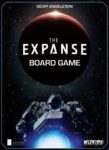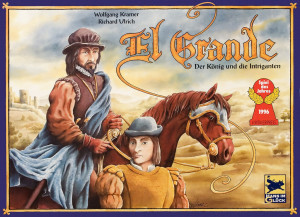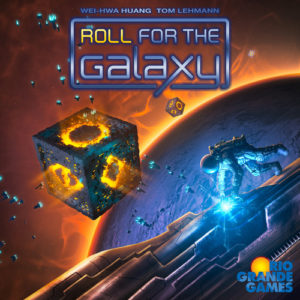- Learning time
- minutes
- First play time
- 90 minutes
The Expanse Board Game
Designed by: Geoff Engelstein
In The Expanse Board Game, based on the TV series of the same name, you are one of four competing factions striving for dominance of the galaxy.
The board shows the galaxy itself, broken into bands, orbitals, and bases. You can play as the United Nations, Protogen Inc, Mars, or the insurgent OPA faction. Everyone starts with a different position on the board and their own specialist abilities, and a marker on the initiative track, the purpose of which will become clear shortly.
Each player’s goal is to establish influence (by placing cubes) on the various planets and moons on the board, and this is achieved utilising a deck of cards. Five cards are always face-up and, on your turn, you pick a card to action, choosing either the Event on the card (the text) or the action points (the number). Using the event is straightforward – do what the text says (adding/manipulating yours or other players’ presence on the board) and your turn is over; or alternatively pay a point to keep the card in reserve for later. If you choose the action points however, there are two stages to your turn. Firstly, you spend the points on adding influence (to bases where your starships are in orbit), moving your starships, or building new starships. But now the other players have the option of taking the event themselves, in the order shown on the initiative track. As soon as any one player chooses to do so, the card is discarded and the player who took the event moves their initiative marker to the bottom of the initiative track; meaning next time there is an available event, they will be bottom of the pecking order!
Seeded in the deck are six scoring cards. When they appear they can be taken just like any other card, but will trigger a scoring round. Each player will score a point for every base they control the influence on, with the hefty caveat that the player with the most starships in the orbital around a base is considered to have +1 influence. Additionally, the player who activated the scoring card chooses one of the bands (inner planets, outer planets, or the belt) as the bonus scoring zone, were the rewards will be greater.
As soon as the last scoring card is activated and scored, the game is over!
Joe says
This is the game that convinced me I don't really like area control games - ones where you're trying to get the most pieces into an area before scoring occurs. It's super dry, and I'm not convinced that even if I were a fan of the books or tv series it would make much impact on me. But I can see it's well-conceived, and certainly a cut above the usual tie-in fare.
The guru's verdict
-
Take That!
Take That!
Plenty. Every turn is an opportunity to at least oust someone from first position in a base, and many of the events can be combative.
-
Fidget Factor!
Fidget Factor!
Variable. After that exploratory first play, The Expanse can move fast. But it can also have periodic lulls of inactivity....
-
Brain Burn!
Brain Burn!
...as players consider their options. Five events to choose from, a variety of ways to spend action points, and - apologies for not going into detail above - each faction has special abilities they can use as well, that increase after each of the first three scoring rounds.
-
Again Again!
Again Again!
You can play the different factions, and the random card order also gives the game a fair bit of variety. Strategically some players may be wanting to have as many turns as possible, whereas others elect to hit those scoring cards the moment they appear, hurrying the game to a conclusion - which can add an extra element of pressure.












Sam says
A game based on a TV series, based on a series of books, The Expanse could so easily have fallen foul of the classic tie-in product - rushed out for an audience before their attention moves elsewhere. But this is a good game - for the right crowd, perhaps an excellent game. I'm not sure I'm the right crowd, as if I'm going space-opera I feel let's go the whole hog and have some explosions thrown in. And although The Expanse is combative, it's the conflict of political chicanery rather than derring-do. I found it slightly dry as a result, with plenty of pauses as players surveyed both the cards and the state of the board before deciding what their best move was.